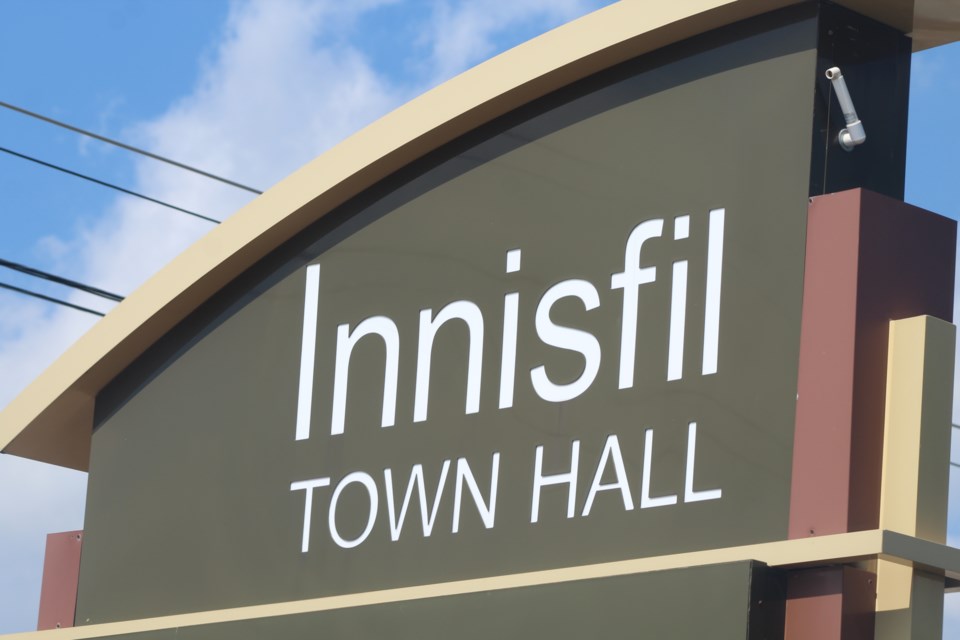Taxes could increase by a total of more than $400 for the average ratepayer in Innisfil over the next two years if the town’s proposed 2023-24 multi-year budget is approved.
Staff provided councillors with a lengthy, but high-level, overview of the budget during the first regular meeting of the 2022-26 council term Dec. 14, showcasing a document that calls for a 4.93 per cent property tax increase in 2023 and a 4.16 per cent property tax increase in 2024 — about $225 and $220 each year.
But given average property values are based on a six-year-old assessment — the planned 2020 reassessment from the Municipal Property Assessment Corporation was indefinitely postponed due to the COVID-19 pandemic — some residents could be paying significantly more.
“You’re saying that the average household is getting a $225 tax increase; I’m looking at the houses that are being built now — the million-dollar homes — and we’re looking at someone getting hit in the face with a $500 tax increase,” said Deputy Mayor Kenneth Fowler. “If I was someone who was not informed or well educated with the tax process, I’d be blaming it all on the town.”
Fowler wanted to ensure all residents — particularly those who will be hit with a heavier increase than the average — knew who to vent their frustrations to.
Of every tax dollar generated, more than half leaves the municipality. The County of Simcoe takes 27 per cent for its responsibilities, including paramedic and social services, among others. The various school boards then take 14 per cent to fulfil their funding requirements, while South Simcoe Police Service collects 13 per cent, similar to the percentage generated from Town of Bradford West Gwillimbury ratepayers.
The approximately $92-million combined operating budget for 2023 and 2024 is funded from the remaining 46 per cent. That 46 per cent also includes the amount allotted for the capital projects levy, which has returned to the one per cent level it was at prior to the COVID-19 pandemic.
The levy had been removed entirely at the start of the pandemic as a relief measure for residents, as council directed staff to limit any blended property tax rate changes to zero per cent for 2021 and one per cent for 2022. It was reinstated to .5 per cent earlier in 2022 thanks, in part, to the recommendation of the then newly hired chief administrative officer, Oliver Jerschow.
“I think we need to be making investments to maintain our service levels in the face of growth,” he said at the time, “whether that means making sure our parks are clean, that residents’ concerns are addressed in a timely manner or that our infrastructure is properly maintained.”
In the end, the property tax rate increased by 2.49 per cent in 2022.
An increase of nearly double that of last year’s was the result of the moves council made to try to make the pandemic more bearable for residents.
“For us to get a zero blended (tax increase) in 2021, we actually had to go to almost a minus one per cent in the town portion of that budget, so we actually had to decrease,” said Mayor Lynn Dollin. “Was it a wise decision? You know, we can sit here in ’22 and wonder whether it was or not, but at the time, it was what council decided to do.
“Are we making up for it now?” Dollin continued. “Probably.”
However, Coun. Alex Waters argued it remained a prudent move.
“I think we all know that by (having a zero per cent budget during the pandemic), at some point in time things were going to have to go up,” Waters said. “I think it would have been much worse if we hadn’t adopted the extra one per cent last year, so it was a more gradual increase. I’m glad we did do that last year because I think we would have been around six or seven per cent this year.”
The multi-year budget calls for approximately $120 million in capital spending, with long-term projects over the next 10 years topping $800 million. The unknowns regarding the province’s Bill 23 make that one per cent capital levy — as well as the money transferred from OLG for hosting the casino at Georgian Downs — all the more important, suggested treasurer Audrey Webb.
“Bill 23 is going to put a lot of pressure on us,” she said. “We forecasted at what our (development charge) revenues are…. There’s going to be changes, so we will be re-evaluating this and we will be coming back to council when we figure out what those financial impacts will be.”
Webb also noted the challenges growth can place on the town’s operating budget. As Jerschow said in his opening remarks, council and staff have a duty to invest in the community and respect the taxpayers with how their money is spent. But few communities are growing as rapidly as Innisfil.
“Service delivery is heavily dependent on our staffing resources,” Webb said. “We have more households, we have more people, so it’s definitely challenging for all the service areas to maintain our levels of service as growth happens and we have these financial restraints.”
Members of the public are invited to the two days of budget deliberations planned for Jan. 25 and 27. The proposed budget package prepared by town staff can be viewed here. Approval for the budget is expected in February.
While the town completes its budget in two-year cycles, it will be required to pass something prior to 2024 to enshrine the tax rates for that year. As it did in 2021, council would have the ability to adjust or add to the budget at that time.



